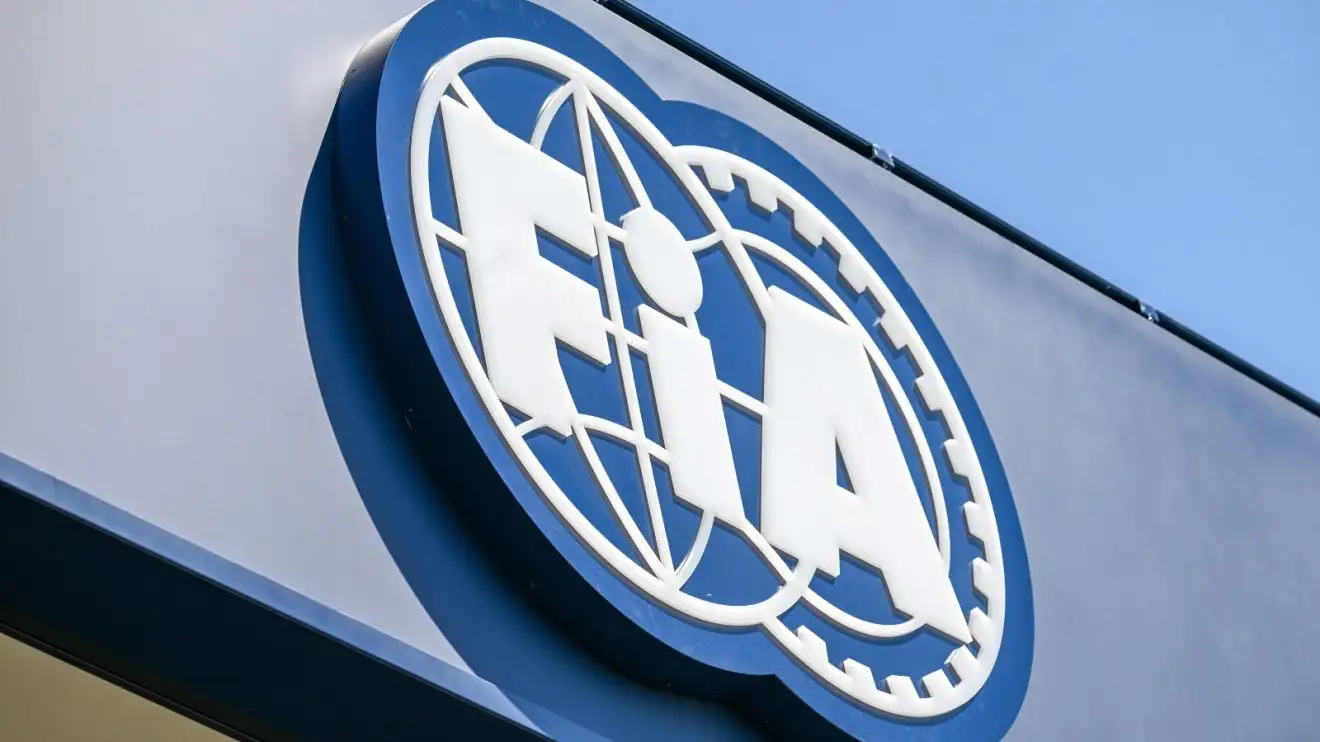F1 investigating critical rule change to stamp out ‘dishonest allegations’

FIA logo
Formula 1 teams could face far steeper costs for key judicial challenges following the most recent meeting of the F1 Commission.
Held in London on Tuesday, a key topic of discussion was the costs associated with protests, appeals, and the right to review.
Concerns teams have weaponised the FIA
In that meeting, the prospect of increasing the cost to protest and appeal was discussed.
“It was agreed that the deposit fees for protests, appeals and right of reviews should be evaluated with a view to those fees being adjusted,” the FIA announced. “The introduction of a fee for investigations was also discussed.”
Within the paddock, there is a sentiment that some teams have begun using the FIA appeals process as a means of distracting and interfering with rivals.
As the sport’s regulator, the FIA is charged with enforcing the regulations, often making calls on complicated technical matters.
On top of that, it is a sounding board for teams as they explore potential development pathways, providing advice on how a concept might fit within (or not) the regulations.
It is also critical in the judicial process should there be a protest, with a defined process through which teams can protest or appeal a decision, the guidelines for which are laid out across F1’s Sporting Regulations and the International Sporting Code.
Under the Sporting Regulations, a protest comes with a refundable deposit of €2000, as does a right of review, while an appeal requires a €6000 deposit.
McLaren Racing CEO Zak Brown has argued that, with the barrier so low, there is little to stop teams from frivolously engaging the FIA, essentially weaponising the governing body in the process.
“I think that some teams, one more than another, use bogus allegations as a disruption tactic, but I think it wastes a lot of the FIA’s time and resources, which is not where I think we as a sport should be asking the FIA to spend their time,” Brown has previously told PlanetF1.com.
However, the American is mindful that there are legitimate reasons to challenge decisions and raise concerns about rivals, which must be preserved.
His solution is to raise the barrier to a point where teams are discouraged from abusing the process.
“If you want to make an allegation of another team, no problem,” Brown insisted.
“There’s a process; you put money down – it needs to be a chunky number in the sense, and it needs to be against your cost cap. Then, if you find that you found something, then you get your money back, no problem. If they didn’t find it or they find that you were frivolous in your allegations, you’ll lose your money and it goes against the cost cap.
“The minute teams have to go, ‘do I want to spend $25,000, $50,000 on something that is nothing more than a disruption tactic’… I’d rather spend that money on developing another front wing or rear wing, because it’s gone too far.
“I think people have been dishonest with the FIA. I think they’ve wasted the FIA’s time and resources.
“You shouldn’t be able to get away with being dishonest to the FIA or making allegations that have no basis or foundation. If you really believe a team is doing something [wrong], no problem.
“I’m not discouraging making allegations; [but] put your money where your mouth is.”
More from PlanetF1.com
👉 Five genius technical solutions we’ve seen so far in F1 2025
👉 Five big rule changes the FIA introduced to reel in dominant F1 teams
McLaren in particular has been the subject of much speculation, none of it proven, amid suggestions it’s circumventing the regulations.
That has included wild claims such as water in the brakes or tyres, phase changing brake material, and overly flexible wings.
It’s those elements which rivals have engaged the FIA in an attempt to uncover the source of the Woking squad’s current advantage, thus far to no avail.
“They can keep looking; there’s nothing to find other than the men and women and McLaren developed a really good race car. They’ve done a great job,” Brown asserted.
“There’s no silver bullet somewhere in the race car, but if teams think there are, and that where they want to spend their timing looking for it, hey, the more time they want to spend trying to find something that’s not there versus developing their own car, quite frankly, is a good use of their time as far as we’re concerned!
“It’s great people want to spend their time trying to find a ghost,” he added.
“We’ve always found it better to focus on your own team.”
Brown is not alone, with Mercedes having found itself subject to a post-race investigation in Canada following a protest from Red Bull.
Following a lengthy delay, courtesy of a chaotic conclusion to the Montreal event, it was subsequently found that George Russell had done nothing wrong and the protest was dismissed.
Read more: Why Christian Horner’s shock firing from Red Bull won’t be felt immediately

